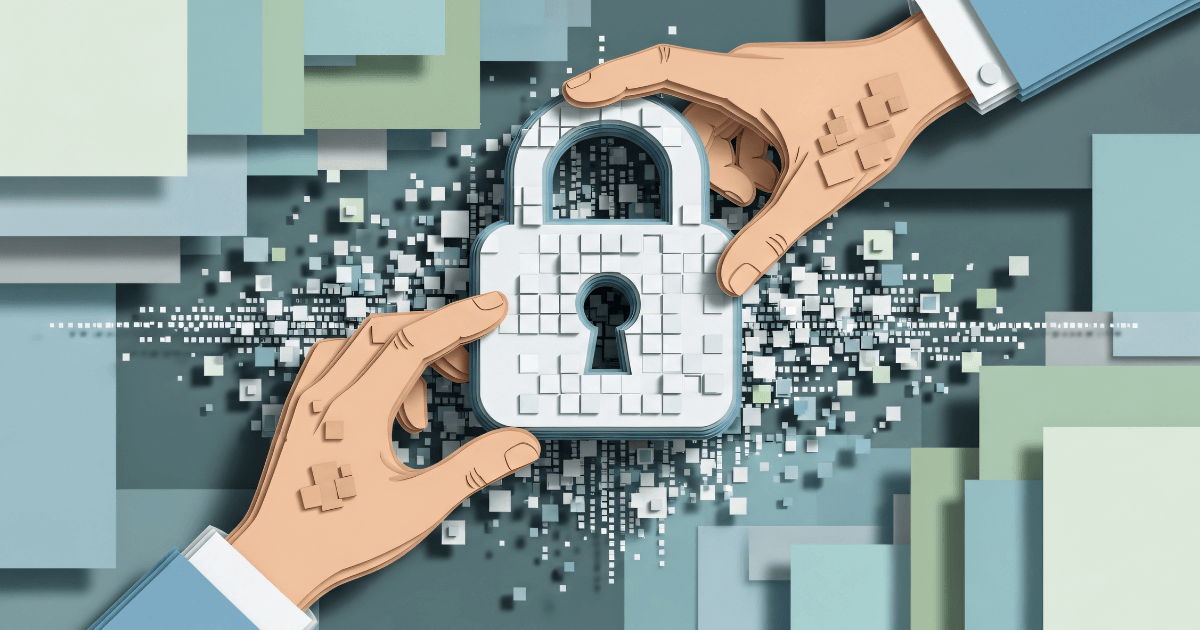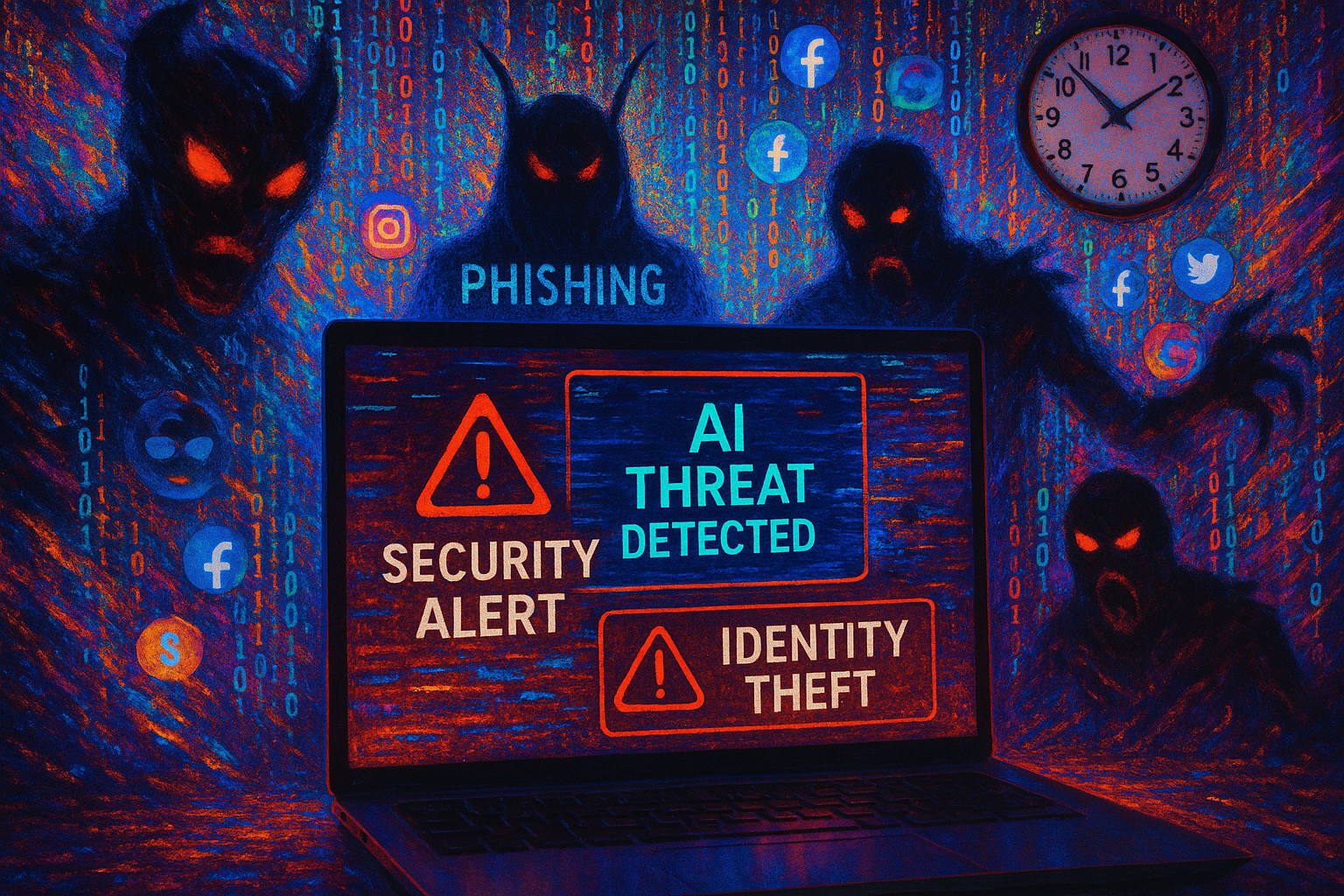5 min read
Meeting the New, AI-Enabled Face of Risk
When we introduced our OmniNet Bridge solution in 2014—known to many of you as My Digital Shield—it represented the next generation of network...

A 2011 study by Carnegie Mellon found that 10 percent of minors are likely to be victims of identity theft before they turn 18. If that surprises you, you’re not alone. A lot of people think that you don’t need to worry about your children having their identities stolen because they’re not out applying for loans, using credit cards, opening bank accounts, and so forth. But that’s exactly what makes children such an enticing target. Their social security numbers are a blank canvas, and thieves can expect to use the numbers for years – until your child is applying for their first job, for example – before anyone notices. The risk isn’t going to go away, so what can you, as a parent, do to protect your children’s identities so that they don’t start their adult lives weighed down by some criminal’s bad history?
When it comes to “free” email providers like Gmail, Hotmail, Yahoo, and the like, the old adage about there being “no free lunch” is absolutely true. The reason these companies are able to offer free email service is because they sell your data to marketers. In addition, your emails – and any attachments – are easily accessible to any slightly skilled hacker. And it’s not just email. The same is true for “free” digital storage providers like Dropbox.
The answer is to go private. Private services are set up with a completely different business model. Public services are in the business of data mining, and giving you a free email address is one of the main ways they get the data to mine. Private companies, on the other hand, exist to sell secure data solutions. You’re the customer, not the people who are willing to pay a lot of money for your data. So avoid the “free” email providers, and, for a minimal cost, you get a world of difference when it comes to privacy and security. The less of your child’s information that’s up for grabs, the lower the chances that someone will steal their identity.
The most important factor in choosing a private provider may surprise you: It’s geography. Some countries willingly cooperate with surveillance initiatives, while others flatly refuse. One of the best options for offshore hosting is Switzerland. That’s because the country’s traditional discretion (think of Swiss bank accounts) and its laws are set up to protect individual privacy. No marketers are sifting through your data, and no government agency can look at it without your knowledge. Even then, it takes a court order.
VPN stands for “Virtual Private Network.” Businesses have used them for years to let remote employees securely access the business’s servers. From the user end of things, most VPNs are kind of like an app – you open the VPN on your desktop, you enter your login information, and the VPN service works through a series of interconnected computers to securely take you to your destination.
VPNs provide security in two ways. First, the data itself is encrypted. The other benefit is that a VPN hides your IP address and metadata. That means that no one can tell who you are or where you’re logging in from. That’s an important feature when you have young children who may not understand the need to be discreet online. But this is especially useful for families traveling abroad: it allows you to access data from your home country that may not be available at your travel destination, such as your bank and credit card sites and also media outlets like Pandora and Hulu. A VPN also encrypts your data, so you don’t have to rely on the unsecured wifi networks so prevalent in airports and hotels, which can leave your information vulnerable and exposed
Secure your computers and smartphones from cyber threats.
Everybody knows that computers are vulnerable to viruses and malware, but we tend to get complacent. And, if your kids are online playing games or downloading apps, that’s an additional risk. And then there are smartphones. Just like traditional computers, they’re vulnerable to viruses and malware. The bigger problem, though, is that your kids carry them around in their pockets or backpacks. If they lose them, that puts a ton of their private information in the hands of whomever happens to find the phone.
For your computer, it’s important to make sure that you have a secure firewall and that your virus protection software is up to date. Security/encryption apps are also available for smartphones. What’s even more important is to secure your phone with a login screen and enable remote wiping, so that, in the event you or one of your kids does lose your phone, you can wipe all of the information from your home computer.
A digital vault has the same purpose as a physical vault: It limits access to those who are authorized, and it monitors them whenever they use that access. A digital vault is a secure alternative to cloud storage and is ideal for confidential forms like tax returns and documents that contain your kids’ private information. It’s also a great way to preserve family history – like family photos, and school papers – for your kids (and theirs). And did you know that digital property is now considered part of an individual’s inheritable assets? It is – so make sure you designate a beneficiary for your family accounts. That’s the best way to avoid a lengthy and expensive probate process if something should happen to you.
The internet has become such an integral part of the way we manage our lives that it’s hard to imagine doing things any other way. It’s opened up access to a wealth of knowledge that no other generation has ever experienced. The tradeoff is that your privacy and that of your children is at risk every time you’re online. Give your children the chance to create their own identities by protecting their data. No one deserves to be stuck with someone else’s bad choices.
Image Credit: Rohan Kar

5 min read
When we introduced our OmniNet Bridge solution in 2014—known to many of you as My Digital Shield—it represented the next generation of network...

9 min read
Over the past decade writing these letters, I’ve made it my mission to help you navigate the digital age with confidence and resilience. If I have...

4 min read
For generations, family offices and ultra-high net worth families have mastered the art of estate planning — preserving wealth, ensuring succession,...